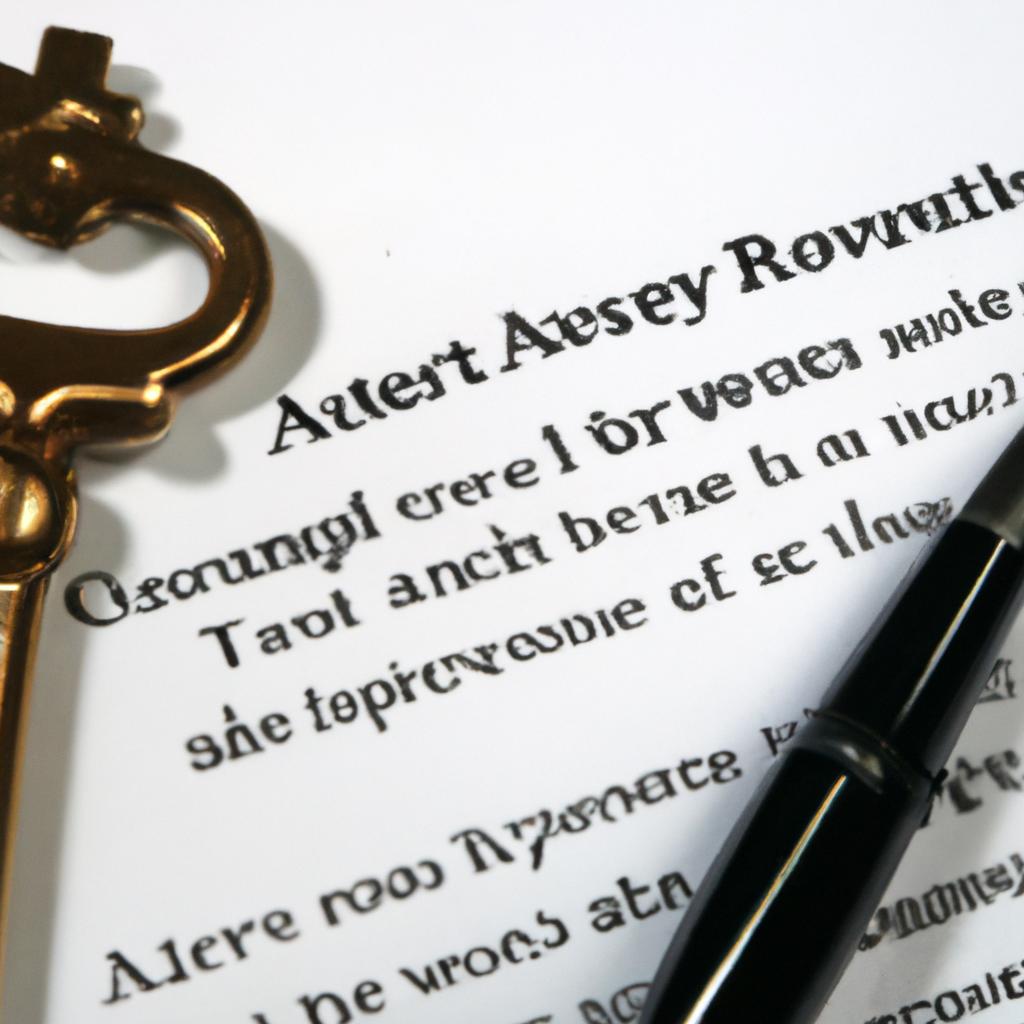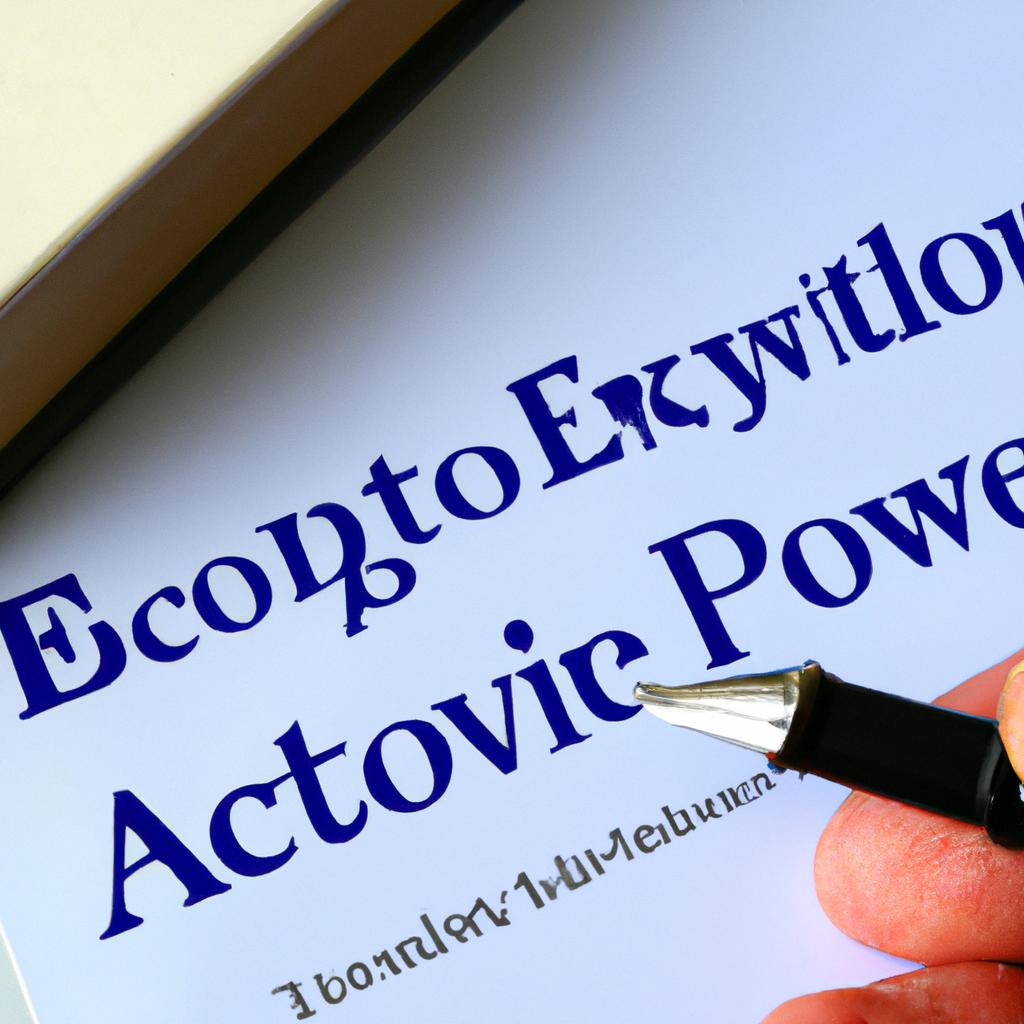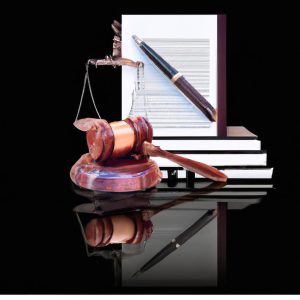As legal professionals, we understand the importance of granting power of attorney to trusted individuals to manage important matters on your behalf. However, there may come a time when it becomes necessary to revoke such authority. In this article, we will delve into the intricate process of how to properly revoke power of attorney. Whether it be for estate planning, probate, elder law, Wills, or trusts, it is important to navigate this process with precision and care. At Morgan Legal Group in New York City, we specialize in providing expert guidance on all matters related to estate planning, ensuring that your wishes are implemented effectively and accurately.
How to Revoke Power of Attorney: Understanding the Legal Process
When it comes to revoking power of attorney, it is essential to follow the proper legal process to ensure that your wishes are carried out effectively. Revoking power of attorney is a serious decision that should not be taken lightly, as it can have significant legal consequences. To revoke power of attorney, you must follow these steps:
- Review the Power of Attorney Document: Carefully review the original power of attorney document to understand the terms and conditions of the agreement.
- Prepare a Revocation Document: Draft a revocation document clearly stating your intention to revoke the power of attorney.
- Notify the Agent and Relevant Parties: Inform the agent and any relevant parties, such as financial institutions, healthcare providers, and legal professionals, of your decision to revoke the power of attorney.
- File the Revocation Document: File the revocation document with the appropriate authorities and provide copies to all parties involved in the original power of attorney agreement.
By following these steps and consulting with a legal professional, you can effectively revoke power of attorney and protect your interests. If you need assistance with the revocation process or have any questions about power of attorney, don’t hesitate to contact Morgan Legal Group, your trusted partner in estate planning and legal matters.

Key Considerations When Revoking a Power of Attorney Agreement
When revoking a power of attorney agreement, there are several key considerations to keep in mind to ensure a smooth and legal process. It is important to carefully follow the necessary steps to revoke the power of attorney to avoid any potential legal complications. Here are some key considerations to keep in mind:
- Review the original power of attorney document: Before revoking the power of attorney, carefully review the original document to understand the terms and conditions of the agreement.
- Notify all relevant parties: It is important to notify all relevant parties, including the individual appointed as the attorney-in-fact and any financial institutions or healthcare providers, of the revocation of the power of attorney.

Navigating Potential Challenges and Consequences of Revoking Power of Attorney
When considering revoking power of attorney, it is important to be aware of the potential challenges and consequences that may arise. One major challenge is navigating the legal process of revocation, which can be complex and time-consuming. Additionally, revoking power of attorney can strain relationships with the individual previously granted authority over your affairs. It is crucial to approach this decision thoughtfully and carefully to minimize any negative repercussions.
Before revoking power of attorney, it is essential to review the terms of the original document to understand the specific process required for revocation. It may involve drafting a formal revocation document, notifying all relevant parties, and potentially seeking legal advice to ensure the process is completed correctly. Consider the following steps when revoking power of attorney:
- Review the power of attorney document to understand the revocation process.
- Draft a formal revocation document outlining your decision to revoke the powers granted.
- Notify all relevant parties, including the individual granted power of attorney, financial institutions, and any other involved parties.
- Seek legal advice to ensure the revocation is legally sound and properly executed.

Expert Recommendations for Safely Revoking Power of Attorney
When it comes to revoking power of attorney, it is crucial to follow the proper legal steps to ensure a smooth and lawful process. Expert recommendations emphasize the importance of understanding the legal implications and potential consequences of revoking power of attorney. Here are some key recommendations to safely revoke power of attorney:
1. **Consult with an experienced attorney:** Before taking any steps to revoke power of attorney, it is highly recommended to seek advice from a knowledgeable attorney specializing in estate planning and probate law. An attorney can guide you through the legal process, review any existing documents, and ensure that all necessary steps are taken properly.
Q&A
Q: What is power of attorney and why would someone need to revoke it?
A: Power of attorney is a legal document that allows someone to make decisions on behalf of another person. Reasons for revoking power of attorney could vary, such as changes in the relationship dynamics or the representative not acting in the best interest of the principal.
Q: How can you revoke power of attorney?
A: To revoke power of attorney, the principal must first review the original document and check for any specific instructions on how to revoke it. Generally, a formal written revocation letter should be drafted and delivered to the appointed representative, along with any relevant parties or institutions.
Q: Are there any specific steps to take when revoking power of attorney?
A: Yes, it is important to follow the legal procedures outlined in the original power of attorney document. Additionally, it is recommended to consult with a legal professional to ensure that the revocation is done correctly to avoid any potential complications.
Q: Can power of attorney be revoked if the principal is unable to communicate?
A: If the principal is incapacitated or unable to communicate, the process of revoking power of attorney may become more complex. In such cases, the court may need to be involved to appoint a guardian or make decisions on behalf of the principal.
Q: What should one do after revoking power of attorney?
A: After revoking power of attorney, it is advisable to notify all relevant parties and institutions, such as banks, healthcare providers, and legal professionals, to ensure that the representative no longer has authority to act on behalf of the principal. Additionally, it may be necessary to update or create a new power of attorney document if needed.
Insights and Conclusions
In conclusion, revoking power of attorney is a crucial decision that should be made carefully and with full understanding of the legal implications. By following the proper steps and seeking professional guidance if needed, you can ensure that your wishes are carried out according to your wishes. Remember, the power lies in your hands to take control of your own affairs. Thank you for reading.






